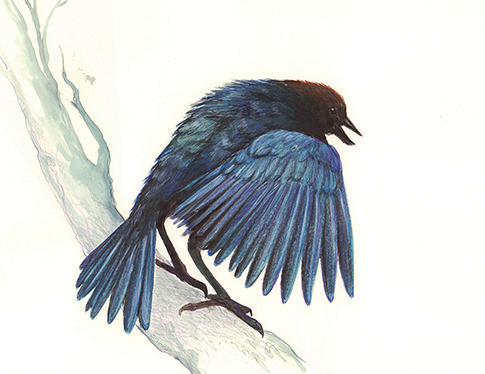The sensory substrate of multimodal animal communication: are females sensory ‘specialists’ or ‘generalists’?
02-13-2018

A majority of signals that animals use to convey information to one another is broadcast in a way that stimulates multiple sensory modalities. We know a fair amount about how these signals themselves are designed, but we know much less about how they are actually processed by the receiver. This is a critical element in the study of animal communication because animals may show tradeoffs in their ability to process information across different sensory modalities. For example, animals with good vision may typically have poor hearing. These tradeoffs could have an effect on individual variation in how that signal is processed, and therefore on the consequences of signal use by the sender. Unfortunately, the very existence of these potential tradeoffs is poorly known. Kelly Ronald (who received a PhD in EEB), Esteban Fernandez-Juricic, Jeffrey Lucas and a colleague showed that the ability of cowbirds to process temporal visual information is positively correlated with their ability to process temporal auditory information. This offers an important insight into the evolution of mating signals because we now expect that cowbird mating signals should be designed to jointly accentuate both visual and auditory temporal information. More generally, our work illustrates that individuals vary in their processing of multimodal signals. This fact alone illustrates that a true understanding of the fitness aspects of mating-related communication requires that we understand the co-variation between sensory modalities in the receiver population.
Ronald KL, T Sesterhenn, E Fernandez-Juricic, JR Lucas. 2017